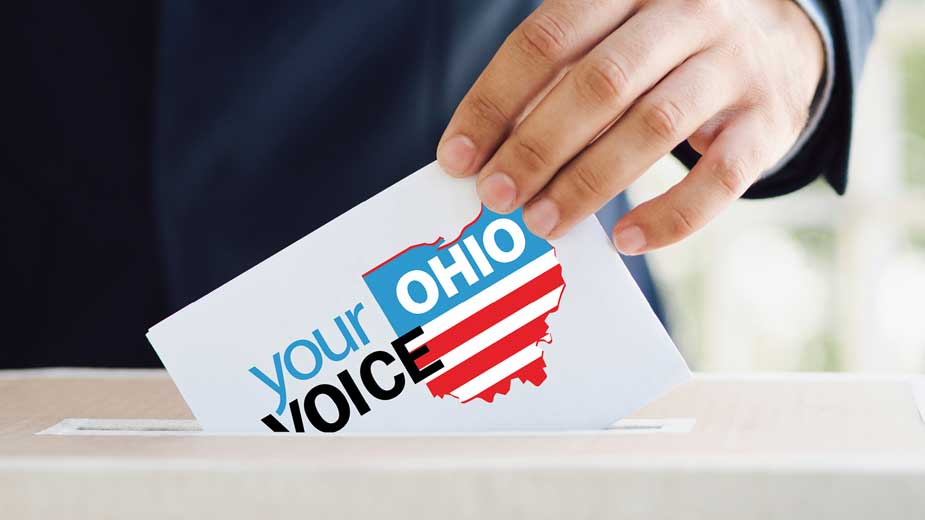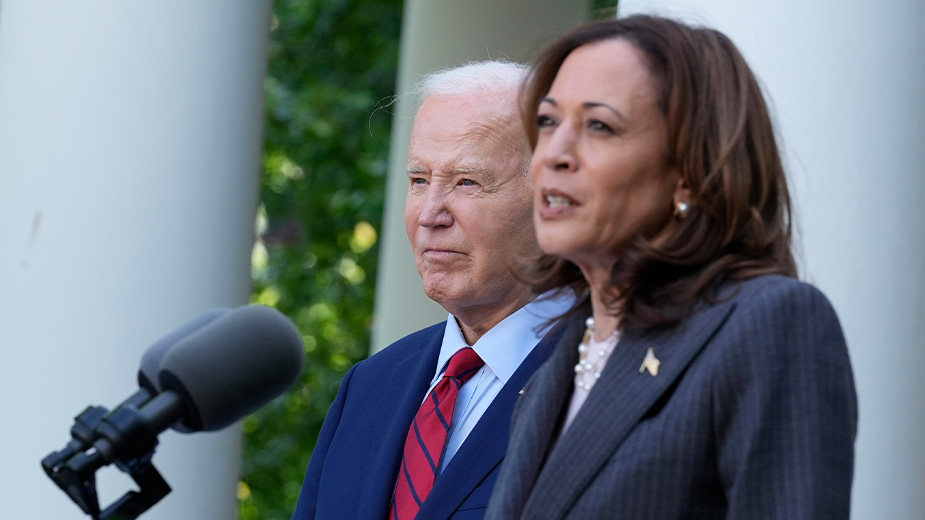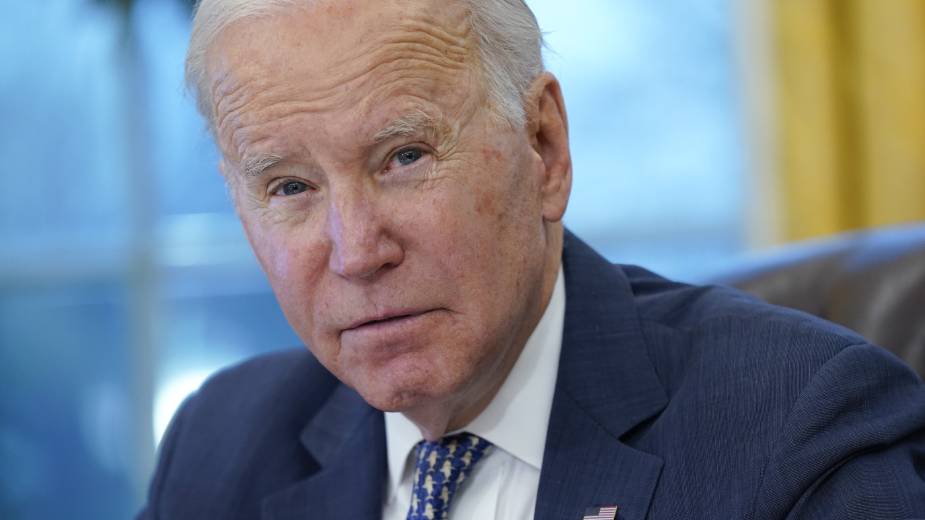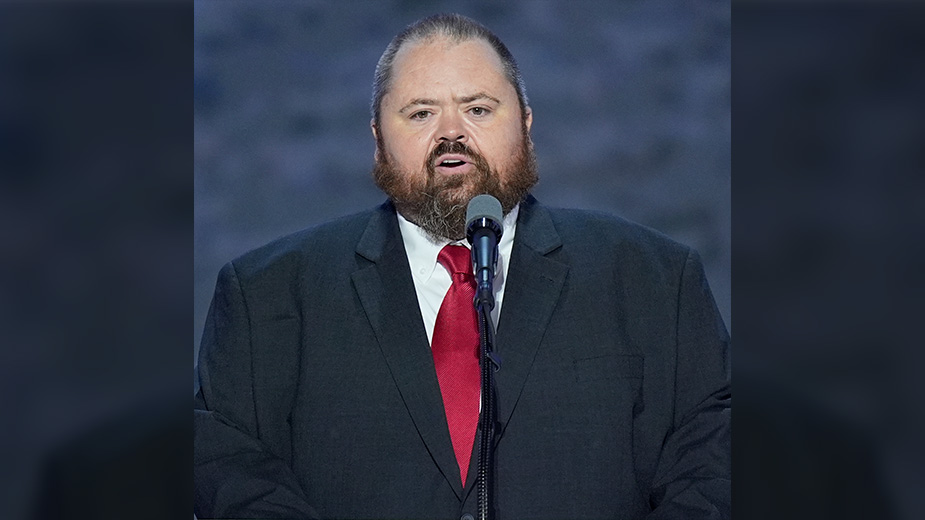Voting, Pandemic Are Top Concerns in NEO Listening Session
YOUNGSTOWN, Ohio – Michelle Anderson of Wooster doesn’t believe Ohioans got enough information about how they could cast their ballots after state officials postponed the March 17 primary.
She doesn’t want to see a repeat of that performance with the upcoming Nov. 3 general election. “I don’t feel like even now it’s been really made clear there is a firm plan in place,” she said.
Anderson is among six northeastern Ohio residents who took part in a July 7 engagement session to discuss the upcoming election and how news media can better cover it. The regional virtual forum was one of five statewide hosted by Your Voice Ohio, a collaborative journalism project involving nearly 50 news outlets, including The Business Journal.
Once the primary was postponed, there didn’t seem to be a “strong enough push” to let people know how to vote — in particular, that they needed to apply for an absentee ballot, Anderson said.
“It didn’t make sense to me when they didn’t send them to all registered voters,” she added.
Adrienne Zurub, a retired registered nurse in Cleveland, also was concerned about the absentee ballot application process. Gov. Mike DeWine “in essence supports” President Trump, who is “trying to jiggle with the post office and the ability to have mail-in ballots,” she said.
She also called for, if not reconstructing democracy for the 21st century, recreating it “toward the fruition of democracy” in the country.
“I don’t think we have fully executed the espoused democratic principles,” she said.
Zurub says she isn’t sure how that can be accomplished when the country was built on racism, genocide of First Nations people and slavery. A democracy on a “detritus foundation” can’t be viable, which is more evident “in this particular zeitgeist.”
Six months ago, the national debt would have been the main concern in this year’s election for Frank Bertuzzi of Wadsworth, but COVID-19 “permeates everything that’s happening right now,” he said. He particularly is concerned about why the country is in the position it is in today, how it can get out and, most importantly, how to avoid being “in the same boat” again. The current pandemic could be a “dress rehearsal” for the future.
“This really caught us totally flatfooted,” he said. “We can’t fight the battle we’re fighting today. We’re never going to win the one that happens tomorrow.”
The pandemic “made me think more about other people” and reinforced the importance of being involved in government, said Reghan Buie, a Youngstown resident pursing her studies on a pre-law track at the University of Cincinnati.
Other than having to shift to online instruction, Buie said she wasn’t impacted much personally by COVID-19. But as an intern in the office of U.S. Sen. Rob Portman, she heard from people who were.
The pandemic “makes regular life issues 10 times harder to navigate through,” she said.
The outbreak exposed disparities in health-care delivery and the state of the system overall, Zurub said.
“When you’re telling nurses and front-line workers to put on a bandana, scarf and a garbage bag to go out and essentially sacrifice yourself, that should say something,’ she remarked. “This is a wake-up call for the whole country.”
Others were more affected personally.
It turned the life of Indya Elie, who lives in Cleveland’s Collinwood neighborhood, “upside down,” from contracting the virus when she was employed as a home health caregiver to shifting the studies of her and her children online.
Getting access to information and services she needed was “a hurdle,” she said. “Nothing was easy to obtain,” she said. “You want to feel like government is helping you. I didn’t get that feeling.”
She since has changed jobs, and now is employed as a health screener for the Sherwin-Williams Co. “My whole experience took me in that direction,” she said.
The experience also exposed how unprepared the country was and how much division there is in the country.
For Bertuzzi and Anderson, the impact mostly has been economic.
Bertuzzi works for a company in the auto supply chain. April and May sales were “virtually down to zero” but have recovered to about 50% of pre-shutdown levels, he reported. Provided conditions don’t get worse, hopefully business will be back to normal in August and September.
Anderson, who works in reservations in the hotel industry, has been able to work from home since the beginning of the shutdown, but the industry is “very uncertain,” she acknowledged.
“Just in my workplace, I am very fortunate to be employed. Roughly two-thirds of our reservations workforce was furloughed and then laid off completely,” she said.
Conditions began to improve but business is slumping again because of the recent spike in cases. People call to ask about amenities such as pools and restaurants. “We literally do not know from day to day how things are going to go,” she said.
The mounting job losses have shown “how far down we have been beaten by this virus,” Elie said. “I never thought I would be questioning if I was going to have a job after graduating,” she said. As companies close, many people are left with having to take a job in another field they aren’t skilled in and having to retrain.
Braylon Lee, a retail worker in Canton, reflected on the people who haven’t been able to celebrate birthdays, anniversaries or other milestones.
“I hope we won’t be kind just because we went through something but because we understand what we went through,” he said.
Lee also wishes education were more of a defining issue in the campaign. He sees it as the key to unlock people’s potential.
“It’s going to be approached through all the issues because education leads into every issue,” he said. “You can do all you can but education is the key to lock or unlock potential
Buie is among participants who wanted to see more information about local issues and candidates. During the primary she was frustrated by the lack of information available. She also is disappointed that the presidential candidates’ strategy seems to boil down to making the opponent seem worse.
“I found it very difficult to find information of substance to understand their actual point of view and what they were going to do with their position,” she said. “Too often people underestimate the power of local officials and what they do cities and communities. Most people would make the argument local government has more impact than federal government on our lives.”
“All you hear about is conflict,” Elie said. “It leaves people in confusion. If you don’t do research, you’re not going to understand what’s going on.”
RELATED STORY: ‘Your Voice Ohio’ Listens to What Voters Are Saying
The Your Voice Ohio Election 2020 project involves more than 50 news outlets in a listening project that attempts to represent the concerns of Ohioans and the actions they think can best be taken to improve life.
Contributing to this two-day package were George Nelson of The Business Journal, Laura Bischoff of the Dayton Daily News, Liz Skalka of The Blade in Toledo, Roger LaPointe of the Bowling Green Sentinel-Tribune, Alan Miller and Ceili Doyle of the Columbus Dispatch, Jess Mador and Jason Saul of WYSO public radio, Andrew Meyer of WKSU public radio, Lauren Sasala, Gina Butkovich, Tramaine Burton, Paige Bennett, Jenna Borthwick and Madison MacArthur of the Collaborative News Lab at Kent State University and Cameron Peters of KentWired.
Copyright 2024 The Business Journal, Youngstown, Ohio.



